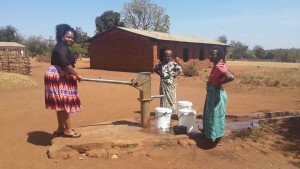
Water & Sanitation remain an underserved sector in Africa where millions lack access to clean water and proper sanitation resulting in water-sanitation related diseases such as dysentery, diarrhea, malaria, etc. Children and Women spend a lot of time each day walking long distances to and from water sources most of which are not safe but breeding grounds for disease-causing organisms.
can supply clean drinking water for one family
Sanitation around most water points is poor and millions lack access to proper sanitation such as properly constructed pit latrines thereby resulting is unsafe disposal of human waste which get washed away down to water streams and other water sources. Experience from past water & sanitation projects in the continent has proved that providing clean water and proper sanitation alone without hygiene education to these communities does not yield much sustainable benefits. There is need to educate beneficiaries of such projects on proper care and use of the constructed water and sanitation facilities and proper storage and handling of the water once it reaches home in order to maximize benefits
One other lesson learned from past water & sanitation projects is that user community involvement from project identification to planning, construction, operations and maintenance and monitoring and evaluation is crucial for sustainability of the projects. It is only after user community involvement in all these project phases that they see the project as theirs and the need to manage it is fully established amongst the users.
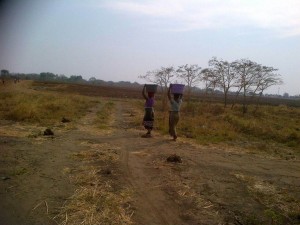
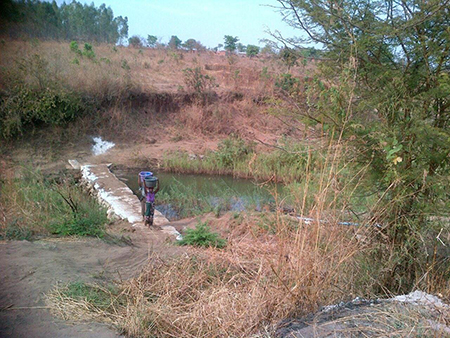
Several organizations have and continue to fund water & sanitation projects in different African countries. Some of the well known organizations are World Bank, United Nations Development Fund, United Nations International Children’s Emergency Fund, World Health Organization, World Vision, Save the Children Fund, etc. Despite the magnitude of funding that is already pumped into several communities in Africa for water & sanitation programs, millions remain unserved and underserved. Some of the presumed already served communities haven’t been able to sustain their programs either due to lack or inadequate training in operations and maintenance of the projects or due to wrong choice of technology or lack of sense of ownership where user communities were not involved in project activities resulting in facilities being abandoned.
Several organizations have and continue to fund water & sanitation projects in different African countries. Some of the well known organizations are World Bank, United Nations Development Fund, United Nations International Children’s Emergency Fund, World Health Organization, World Vision, Save the Children Fund, etc. Despite the magnitude of funding that is already pumped into several communities in Africa for water & sanitation programs, millions remain unserved and underserved. Some of the presumed already served communities haven’t been able to sustain their programs either due to lack or inadequate training in operations and maintenance of the projects or due to wrong choice of technology or lack of sense of ownership where user communities were not involved in project activities resulting in facilities being abandoned.
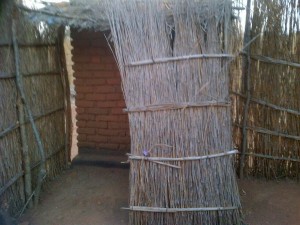
Feasibility study for installation of mukti organic, inorganic and pathogens water treatment technology.
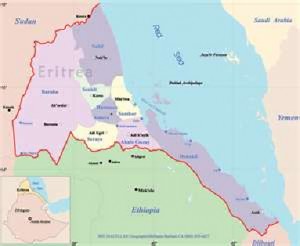
Feasibility study for installation of mukti organic, inorganic and pathogens water treatment technology.

Feasibility study for installation of mukti organic, inorganic and pathogens water treatment technology.

Feasibility study for installation of mukti organic, inorganic and pathogens water treatment technology.

Feasibility study for installation of mukti organic, inorganic and pathogens water treatment technology.

Feasibility study for installation of mukti organic, inorganic and pathogens water treatment technology.

Feasibility study for installation of mukti organic, inorganic and pathogens water treatment technology.

Feasibility study for installation of mukti organic, inorganic and pathogens water treatment technology.

Feasibility study for installation of mukti organic, inorganic and pathogens water treatment technology.
Feasibility study for installation of mukti organic, inorganic and pathogens water treatment technology.
Feasibility study for installation of mukti organic, inorganic and pathogens water treatment technology.
Feasibility study for installation of mukti organic, inorganic and pathogens water treatment technology.
Feasibility study for installation of mukti organic, inorganic and pathogens water treatment technology.
Feasibility study for installation of mukti organic, inorganic and pathogens water treatment technology.
Feasibility study for installation of mukti organic, inorganic and pathogens water treatment technology.
Feasibility study for installation of mukti organic, inorganic and pathogens water treatment technology.
Feasibility study for installation of mukti organic, inorganic and pathogens water treatment technology.
Feasibility study for installation of mukti organic, inorganic and pathogens water treatment technology.
Feasibility study for installation of mukti organic, inorganic and pathogens water treatment technology.
Feasibility study for installation of mukti organic, inorganic and pathogens water treatment technology.
Feasibility study for installation of mukti organic, inorganic and pathogens water treatment technology.
Feasibility study for installation of mukti organic, inorganic and pathogens water treatment technology.
Feasibility study for installation of mukti organic, inorganic and pathogens water treatment technology.
Feasibility study for installation of mukti organic, inorganic and pathogens water treatment technology.
Copyright © 2024 Humane Water. All Rights Reserved. Business Website Design & Hosting by Alpha Net. Powered By Alpha CMS